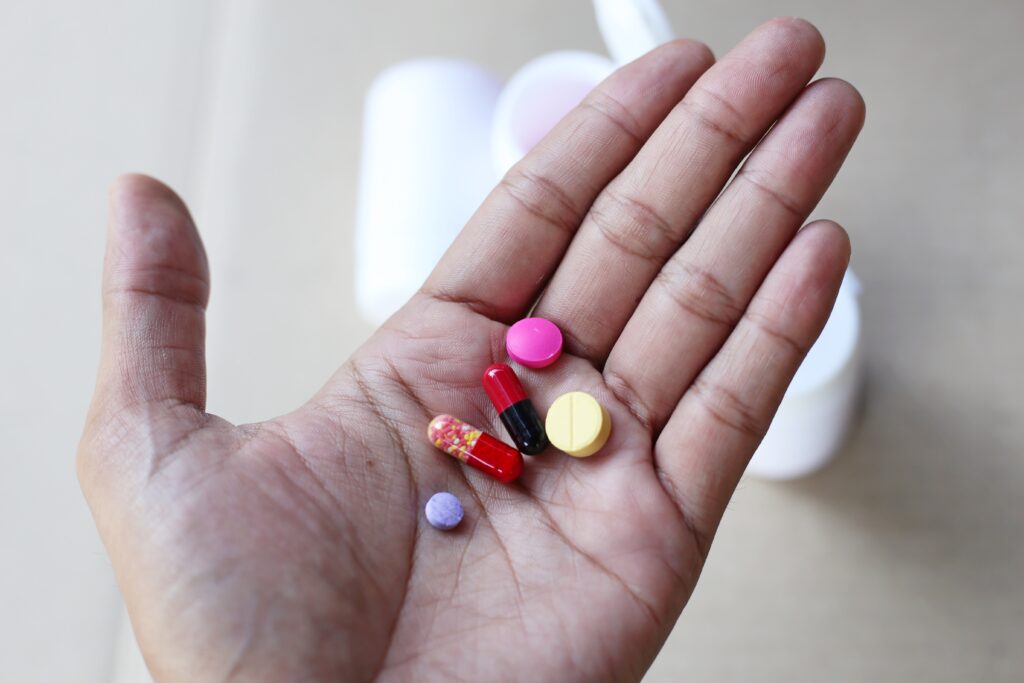
Your antibiotics might not get along well with your calcium supplement. St. John’s Wort might reduce the effectiveness of your birth control pills. Nitroglycerin plus Viagra can be a deadly combination.
If you take multiple medications and supplements, it’s important to be aware that some combinations can have unintended – and sometimes dangerous – consequences.
Many drugs can change the way other drugs work by affecting the way your body absorbs, distributes, metabolizes or eliminates them. Sometimes, these drug interactions can change the strength of a medication you need, making it too weak or too strong. In other cases, they can cause new or toxic side effects.
A closer look at a few examples
- Antibiotics and mineral supplements: Calcium, magnesium, potassium, iron and other minerals interact with many antibiotics in a way that reduces the level of the antibiotic in the body and makes the treatment ineffective.
- St. John’s Wort and birth control pills: St. John’s wort, found in several over-the-counter products used to treat depression, interacts with many different drugs. As just one example, it increases the risk for contraceptive failure when taken with birth control pills.
- Nitroglycerin and Viagra: Nitroglycerin, a nitrate, is used to relax blood vessels and provide quick relief from chest pain. Viagra and similar drugs dilate blood vessels in another way. Combining these two types of drugs amplifies their effects, which can cause dangerous and life-threatening low blood pressure.
- Lithium and diuretics: Dosing for lithium, a mood-stabilizing drug, is very sensitive – taking just a little bit more than recommended can cause toxic levels in the blood. Diuretics, also known as water pills, lower the amount of water in the blood, which can raise the concentration of lithium to harmful levels.
- CBD and antidepressants: CBD interacts with antidepressants and many other common medications. Read more.
The more medications you take, the higher your risk that some of them won’t get along well. Other factors – including advanced age, substance abuse, pregnancy, diet and lifestyle issues, certain diseases and overall health – could make you more vulnerable to drug interactions and complications, as well.
Drug interactions can be dangerous, but they also can be prevented. Tracking what you take and asking questions is the best way to ensure your own safety.
How to avoid drug interactions
While your prescribing physicians and pharmacists take many steps to prevent drug interactions, you play an important role, too:
- Know and understand all of the medications you take. Keep a list of their names, the dosages, how you take them, and what you’re taking them for. This includes prescriptions, over-the-counter supplements, herbal remedies and recreational drugs.
- Share your list with all of your health care providers.
- Since the risk of interactions rises with the number of drugs taken, ask your providers if there are any unnecessary medications that you can eliminate from your list.
- Before you add a new medication, discuss the risks, benefits and potential interactions with your provider to make sure it’s a good fit with your other medications.
- Never take another person’s medication. When a medication is prescribed by a provider, the drug, dosage and directions are tailored to the intended person’s specific health status. What’s safe and effective for that person may not be for you.
- Ask questions! If you aren’t sure about the potential interactions between the medications and supplements you take, ask a pharmacist – we are a great resource and are happy to help.


